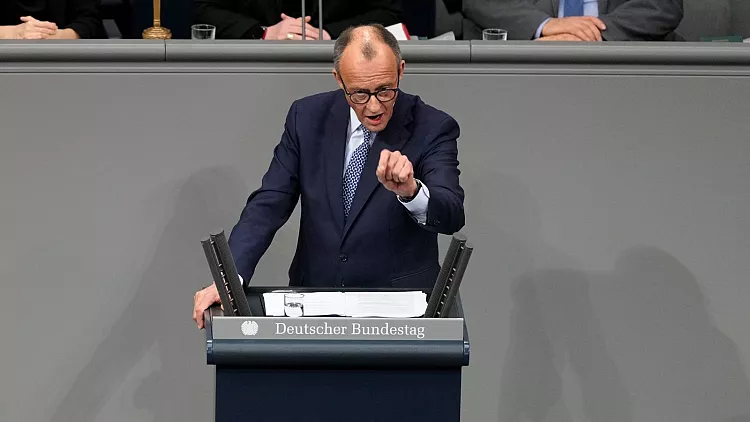Hundreds of protesters gathered outside the headquarters of Germany’s centre-right CDU party in Berlin to voice their opposition to a new, tougher migration policy. The demonstration, organized by Amnesty International, Seebrücke, and other advocacy groups under the slogan “Firewall instead of arson,” criticized the policy for seeking to turn away more migrants at Germany’s borders.
The policy, introduced by CDU leader Friedrich Merz, has been met with backlash, particularly because it passed with the support of the far-right Alternative for Germany (AfD) party. This move has intensified political tensions, as CDU has previously maintained a strict stance against collaborating with the AfD.
Merz’s push for stricter migration controls gained momentum following a tragic knife attack by a rejected Afghan asylum-seeker, which resulted in the deaths of a man and a two-year-old child. In response, Merz introduced two non-binding motions in parliament advocating for tighter security and stricter border controls.
One of the motions, which called for increased rejections of asylum seekers at Germany’s borders, narrowly passed with 348 votes to 345, with 10 abstentions. AfD lawmakers joined other opposition parties to push the measure through, drawing applause from the far-right group. However, a second CDU-CSU proposal for broader migration reforms and enhanced security powers was rejected.
The passage of the motion with AfD’s backing has sparked controversy, with critics accusing CDU of breaking its commitment to distance itself from far-right politics. ProAsyl, Germany’s largest pro-immigration advocacy group, condemned the move. Spokeswoman Wiebke Judith warned that CDU’s cooperation with AfD signaled a dangerous shift, stating:
“This is the beginning of the firewall crumbling, threatening to bring authoritarianism and fascism back into Germany.”
Defending his stance in parliament, Merz dismissed the criticism, arguing that the right decision remains valid regardless of who supports it. He stated, “A right decision does not become wrong because the wrong people agree. It remains right. It remains right.”
This heated political battle comes just weeks before Germany’s parliamentary elections. Recent polls show Merz’s CDU leading with 30% support, while AfD follows with 20%. Chancellor Olaf Scholz’s Social Democrats and their former coalition partners, the Greens, are lagging behind. The fallout from the migration policy vote could play a key role in shaping the upcoming election results.

